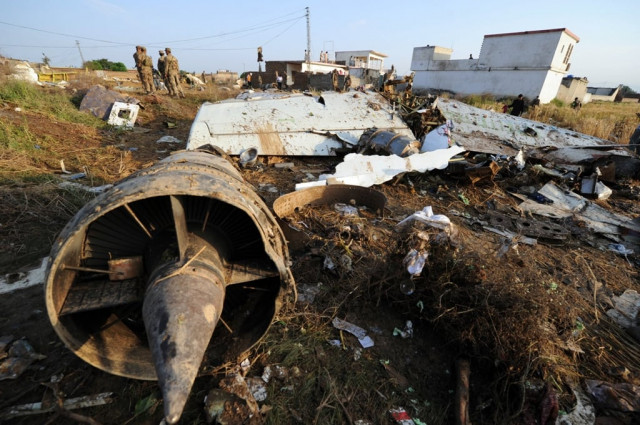Bhoja air crash report
The crash of Bhoja Air flight BHO-213 should never have happened, and was entirely preventable

Bhoja Air had provided incorrect information to the CAA about automated flight deck training — which may partially but not wholly exonerate the CAA in this case. PHOTO: REUTERS
The crash of Bhoja Air flight BHO-213 should never have happened, and was entirely preventable. There was no mechanical failure, the aircraft performed exactly as it was supposed to and the fault is evidentially in the human chain that is deficient, lethally so, from top to bottom.
The CAA should have picked up that the crew was not appropriately trained, and whoever rostered the crew would have been aware of that as well. The crew themselves could — should — have said they were not certified for the type and refused to fly and did not, and the captain should not have pressed on with the landing and diverted. Bhoja Air had provided incorrect information to the CAA about automated flight deck training — which may partially but not wholly exonerate the CAA in this case. The report is a catalogue of corporate, institutional and individual failure at every level and should serve as the starkest of warnings for all engaged in the business of commercial flying in Pakistan. There are no shortcuts to safety; there can be no economies of ‘best practice’ as has often been the case in this country. In this particular case, 127 lives were needlessly lost.
Published in The Express Tribune, January 23rd, 2015.
Like Opinion & Editorial on Facebook, follow @ETOpEd on Twitter to receive all updates on all our daily pieces.















COMMENTS
Comments are moderated and generally will be posted if they are on-topic and not abusive.
For more information, please see our Comments FAQ